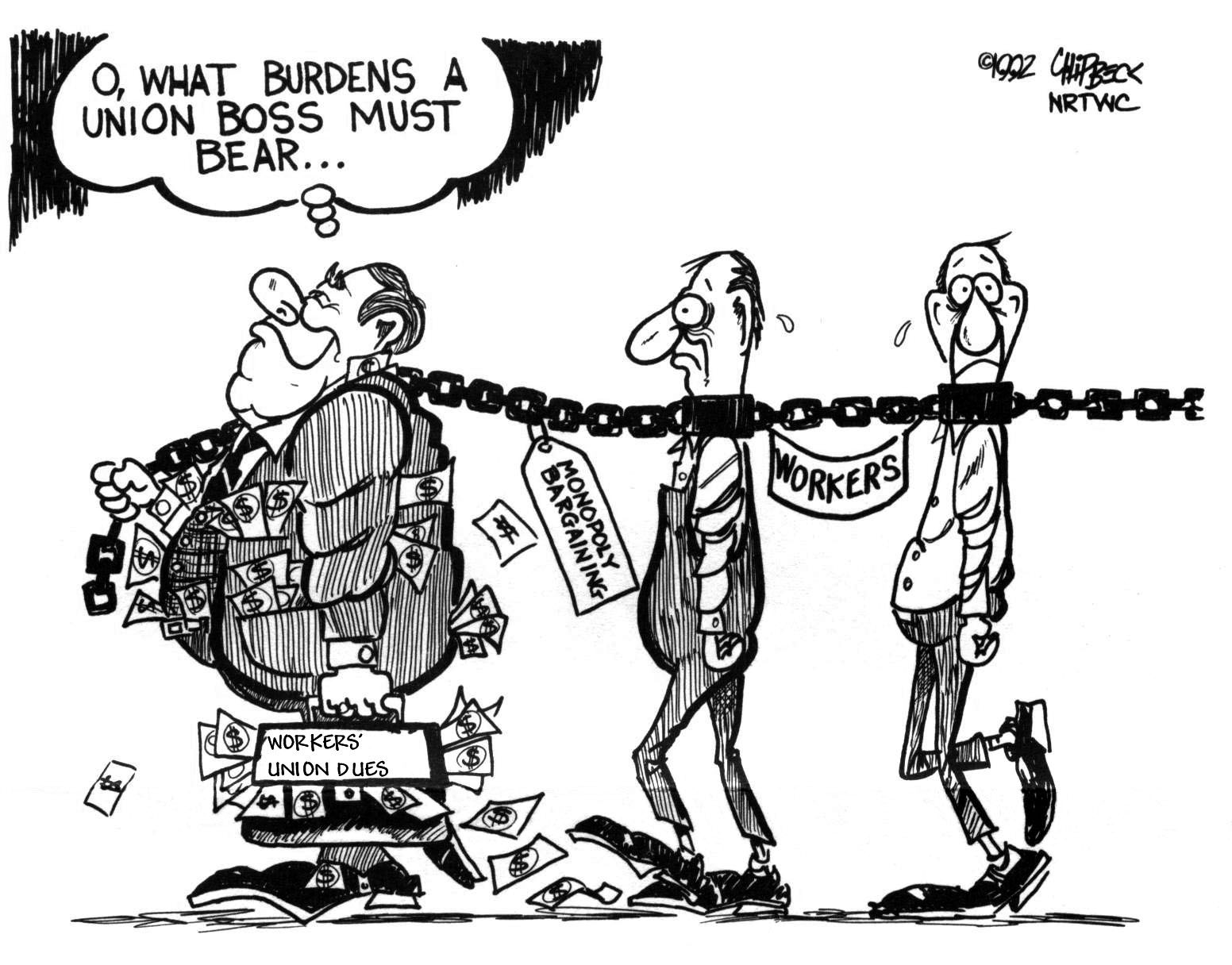‘A Classical Liberal Is Justified in Supporting’ Right to Work Laws
The Government-Created Right-to-Work Issue by Charles W. Ba

Big Labor apologists who themselves haven’t a libertarian bone in their bodies often opportunistically adopt a “libertarian” stance to justify their opposition to Right to Work laws. Such laws, claim proponents of monopolistic unionism, violate employers’ “freedom of contract” by prohibiting them from cutting deals with union officials to fire employees who refuse to pay dues or fees to the union.
A few years ago, economist Charles Baird, University of California-Hayward professor emeritus, explained why in the context of longstanding federal and state labor policies governing nearly all private-sector workplaces and a very large share of public-sector workplaces, this jibe against Right to Work laws is without merit. ( To read all of Baird’s analysis, which appeared in the January/February 2006 issue of The Freeman, see the link above.)
Baird is basically a libertarian himself, though he prefers to call himself a “classical liberal.” (It should also be noted that he is the National Institute for Labor Relations Research’s adjunct scholar.) He agrees with the vast majority of Right Work supporters that all federal and state laws authorizing so-called “exclusive representation” in the workplace should be repealed. As a classical liberal, he also believes that if all such pro-union monopoly laws were terminated, there would be no need for Right to Work laws.
But Baird is convinced that Right to Work laws are completely appropriate as a means of mitigating the harmful impact caused by government-authorized (and -promoted) “exclusive representation”:
[Under] Section 9(a) of the NLRA, American unions are not voluntary organizations that represent only their voluntary members. If they are certified by majority vote among workers in a bargaining unit they become the exclusive (monopoly) bargaining agents of all such workers, whether individual workers agree or not.
Individuals are even forbidden to represent themselves. This is usually justified on grounds of “workplace democracy.†As Hayek wrote in 1949 (“The Intellectuals and Socialismâ€) this is an example of “making shibboleths out of abstractions.†The First Amendment forbids deciding which church to attend on the basis of a majority vote enforced by government. Likewise, the First Amendment’s principle of freedom of association forbids deciding which representative will represent all workers on the basis of a majority vote enforced by government. Democracy is a form of government. Government cannot rightly impose democracy on private decisionmaking. In the private sphere of human action, an individual’s associations should not be subject to majority vote. Exclusive representation should be repealed.
Government-imposed “exclusive representation” (more properly referred to as monopoly bargaining) violates the freedom of association of employers as well as employees. Once federal or state policy has handed monopoly power to one union to negotiate pay, benefits, and work rules for all of an employer’s front-line employees, the employer is hard pressed to resist union officials’ demands for forced dues. In this context, any negotiations over a forced-dues contract clause can hardly be said to be free.
That’s why a classical liberal like Baird supports enactment of Right to Work laws as a means of reducing the damage done by government-promoted monopoly bargaining unless and until the latter ceases to be the law of the land.
Baird explains it this way:
The unions’ free rider argument amounts to saying that since Congress has violated individual workers’ freedom of association with exclusive representation, Congress must also override individual workers’ freedom of association in choice of whether or not to support unions that represent them. According to union apologists, one violation of freedom of association compels another violation of freedom of association. I argue that, given the first trespass against freedom of association, a National Right to Work Act is a proper way to avoid the second trespass.

